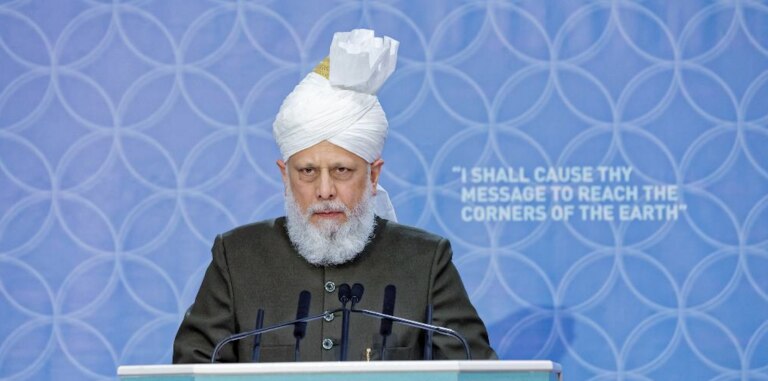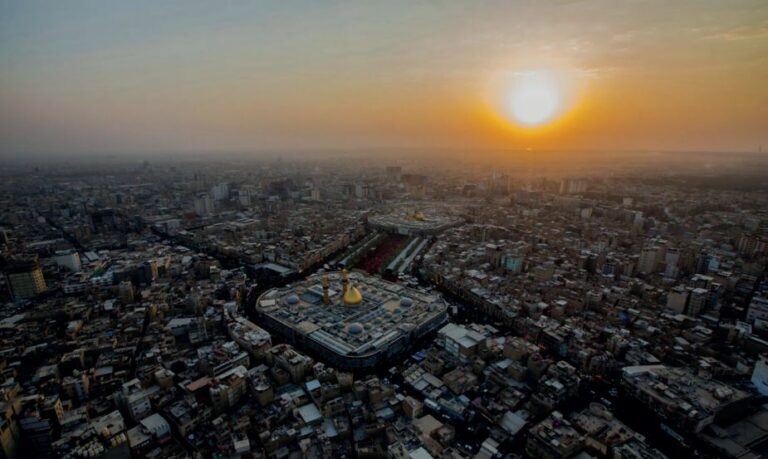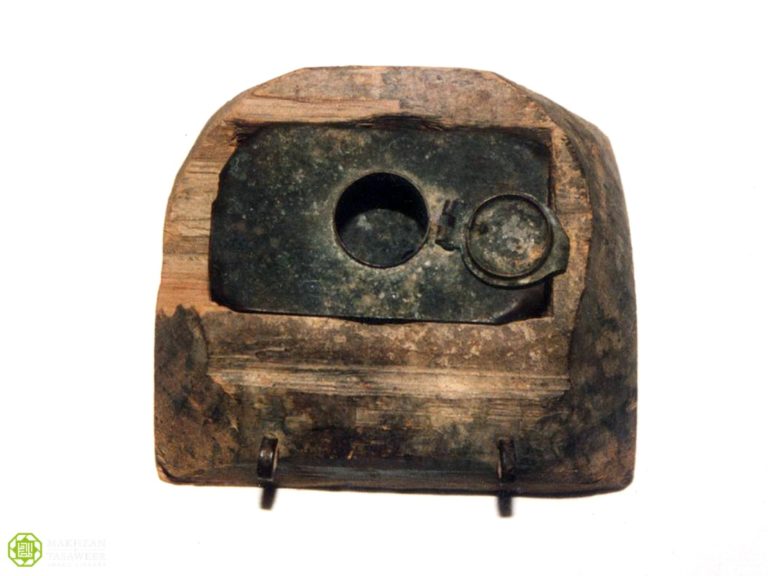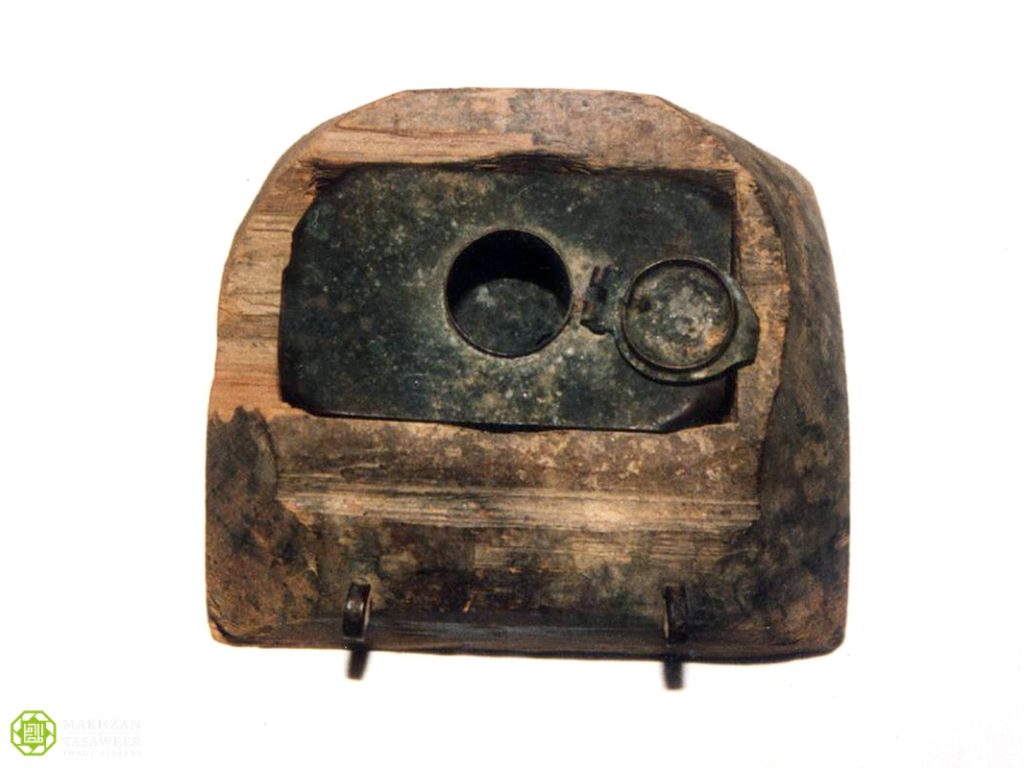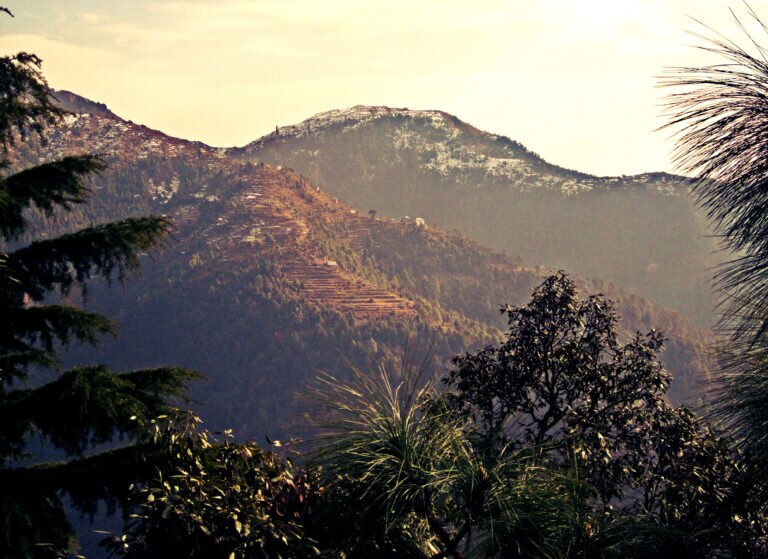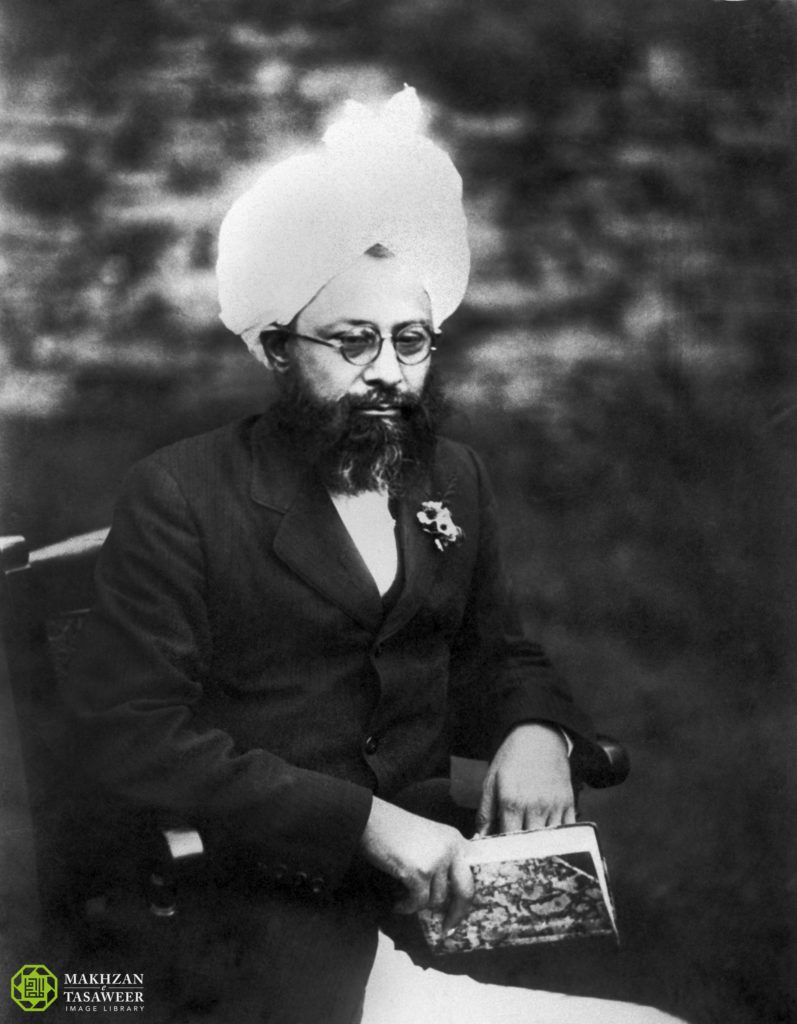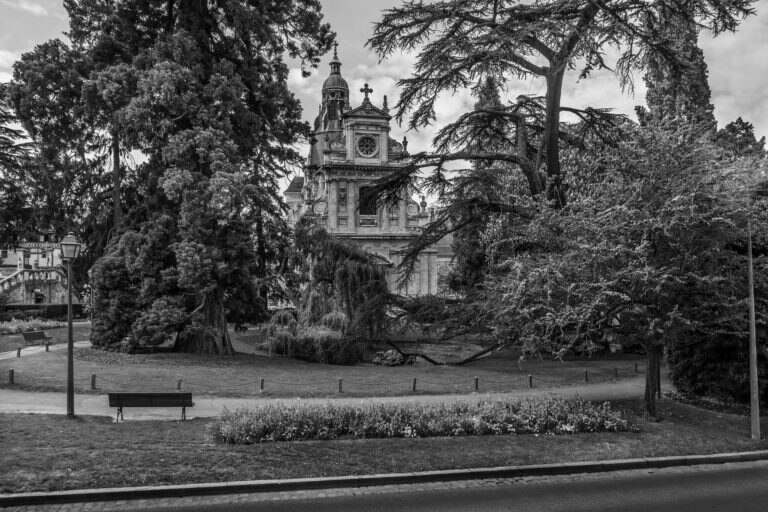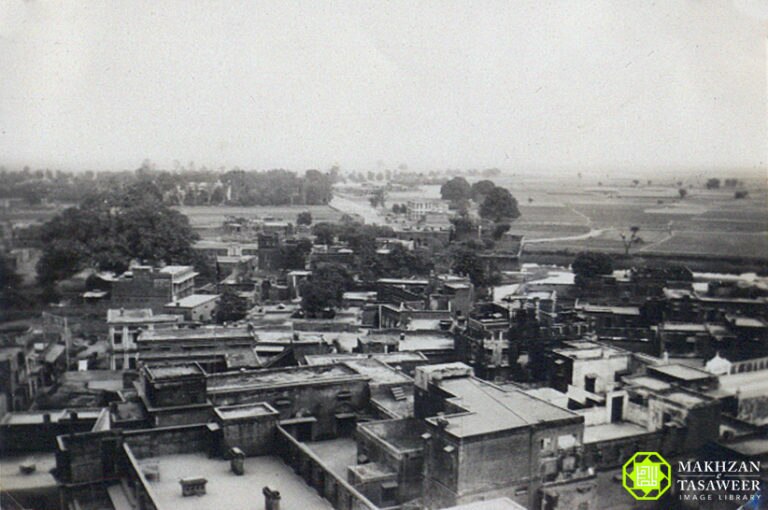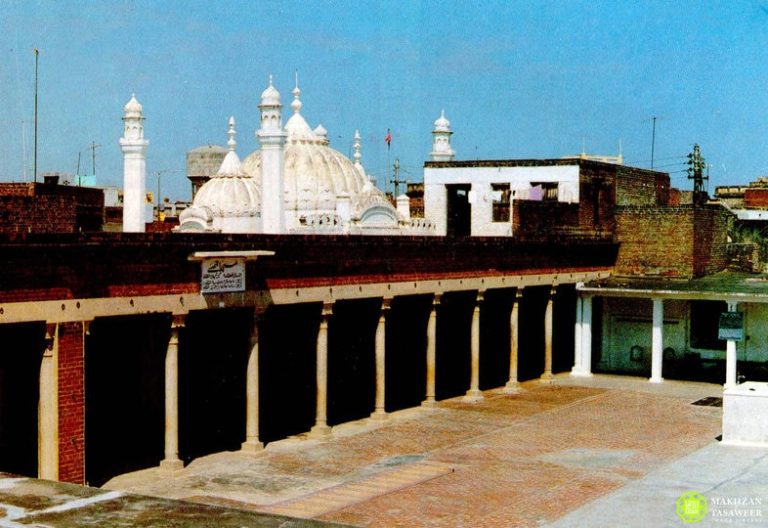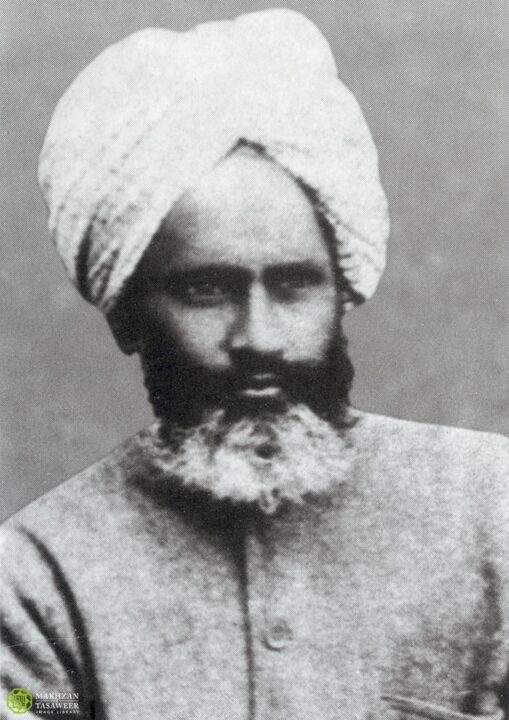Asif M Basit
When Allah bestowed upon the Jamaat a television channel, I was of an age that I could appreciate its significance, therefore I can attest to the fact that that day was a day of jubilation. That day, everyone witnessed the fulfilment of a magnificent promise of God.
This was in 1992. At the time, discussions would take place in every Ahmadi household, particularly in the households of Rabwah, about the migration of Hazrat Khalifatul Masih IVrh and its future. Some would say that Rabwah would once again become the residence of Khilafat, while others argued that the history of religions did not support this claim.
The fruits that this migration would produce, nonetheless, would become apparent in their own manner, but the fruits that the birth of MTA produced were truly marvellous!
During those days, a poet of Rabwah, Mubashar Ahmad Mahmud Sahib, wrote an apt couplet:
ہوا کے دوش پہ لاکھوں گھروں میں در آیا
جو شخص چھوڑ کے نکلا تھا گھر خدا کے لئے
(The person who left his home for the sake of God came flying on the wings of the wind and descended upon the homes of thousands.)
Khilafat was now not just in Rabwah, but in the household of every city in every part of the world! From the very first day, MTA became the means of communication between the Jamaat and its nucleus, i.e. Khalifatul Masih.
Much like pearls, Ahmadis from across the world – from the Americas, through Europe and extending to the Far East – had become linked through this cord. This divine blessing of Allah upon the Jamaat saw its inception under the auspices of Hazrat Mirza Tahir Ahmad, Khalifatul Masih IVrh.
Then came the time for the Fifth Khilafat and MTA entered its adolescent years. And when MTA was blessed with the love and affection of Hazrat Mirza Masroor Ahmad, Khalifatul Masih Vaa during such formative years, the condition was such that:
رنگ تھےاُس کے دیکھنے والے
جب بہاروں پہ وہ چمن آیا
(Its colours were worth observing, when the garden manifested [its glory] in spring.)
When MTA met Hazrat Khalifatul Masih Vaa for the first time, a record was set of MTA viewership. Millions of viewers saw the sun rise in a new manner that day. The historic announcement of the appointment of Hazrat Khalifatul Masih Vaa and the first glimpses of Huzooraa were all relayed to every Ahmadi throughout the world.
The significance of MTA was made clear once more to every Ahmadi. This glorious reminder of global unity of the worldwide Ahmadiyya Movement – MTA International – had the undivided attention of Hazrat Khalifatul Masih Vaa from the very first day. The various departments and offices within MTA are literally full of guidance from Huzooraa.
I am assigned the responsibility of MTA programmes, so whatever I am about to mention is from the perspective of this department. And where this department’s paths cross with other departments within MTA, they too shall be mentioned.
On 9 December 2004, I was blessed with my waqf being accepted by Hazrat Amirul Momineenaa. I was allocated the role of office in-charge at MTA. The majority of work in this role entailed clerical work and correspondence. I was able to witness the attention Huzooraa gives to MTA and the love he has for this department from the very first day of my posting.
The office I was initially assigned to was situated adjacent to the Mahmood Hall, Fazl Mosque, London, where Huzooraa would return to his residence after leading prayers in the mosque. Many a time did it so happen that after Namaz, Huzooraa visited that office. Whoever was present at the time would be asked about their work. In this manner, our spirits would be uplifted and our passion reignited. At times, Huzooraa would visit our offices aside from Namaz times.
In those days, all departments of MTA were crammed into different corners of the Mahmood Hall and thus, all departments would, at some stage, welcome the blessed footsteps of Hazrat Khalifatul Masihaa and staff members would seek blessings from his presence.
Every Wednesday, I would take my weekly day off. On such a Wednesday morning in February 2005, having dropped off my children at school, I was out shopping with my wife, when I received a phone call from Zuhoor Ahmad Sahib, who is a missionary serving in the private secretariat.
He said that Huzooraa had called me.
“Zuhoor Sahib, I am out shopping currently, but I will leave immediately and will arrive shortly.”
“How long will you be?”
“Around 15 to 20 minutes.”
As I said this, I had already sat in my car and began my journey towards the Fazl Mosque.
The impact a half-completed shopping list has on wives is something that all husbands are familiar with; however, this was a new experience not just for me, but for my wife also. She readily took her seat in the car as I attempted to escape the unbridled traffic of Tooting.
On an average day, it takes around 15-20 minutes to get to the Fazl Mosque from this location; however, that day, it seemed as if all the traffic had united to stop me from going anywhere. Binmen had parked their lorries in the middle of the road and carried on clearing up the rubbish from the streets. They carried on with their work and smoked their cigarettes as if after that day, they would not smoke another cigarette again. Learner drivers were driving as gracefully as ever, as if to set new records of careful driving. The whole of London seemed to be taking their driving tests that day. To add to my troubles, road works – something Londoners and Britons are all too familiar with – were in full swing. It was less of a journey and more of an obstacle course.
After passing through all those obstacles, we reached the Fazl Mosque over half an hour later. As I entered the private secretariat, Zuhoor Sahib said that now, only if Huzooraa called him would he be able to inform Huzooraa about my presence.
After a short while, Huzooraa called me in. I had only set one foot in his office, when Huzooraa asked:
“When good-quality photos and videos of Hazrat Musleh-e-Maudra are available, then why are such poor-quality ones shown?”
I did not have the audacity to inform Huzooraa that I only sit in an office and in fact, this responsibility falls on another department. But alhamdolillah, I did not need to explain this because Huzooraa then added:
“All such poor-quality photos and videos must be stopped; tell them to show me all the footage and pictures they have of Hazrat Musleh-e-Maudra; I will myself tell them which to use. Hazrat Musleh-e-Maudra was a majestic and grand personality; pictures should reflect such majesty.”
“Yes, Huzoor.”
“And it is the month of February. Tell them to broadcast the interview with Chaudhry Muhammad Ali Sahib in which he speaks about Hazrat Musleh-e-Maudra.”
“Yes, Huzoor.”
I was in complete awe. I was about to say “jazakallah” and leave the office, when Huzooraa asked, “How will you convey this?”
“I am not sure”, I replied. The truth is that I really wasn’t sure how to officially relay Huzoor’s instructions to someone.
“Go outside and write me a letter, saying that I called you and told you this. I will then approve it. Then, take that approved letter to the chairman [of MTA].”
This was my first lesson in official correspondence with Huzooraa and how to convey Huzoor’s instructions to others. The responsibility of programmes was assigned to me much later, but this mulaqat was my first lesson in how sensitive the content shown on MTA is.
As I reflect on this lesson today, its depths show me new meanings. Audio and visual imagery both are of equal significance as far as television programmes are concerned. Thus, if the visuals do not aptly match what is being said, whatever is being said effectively loses its impact. And when it comes to the images of the Promised Messiahas and his Khulafa, then care should be taken to the finest degree possible to avoid any belittling on our part because the new generation, who is not yet familiar with these great personalities, will, after all, be inspired through the projection of these individuals on MTA.
After quite some time, Huzooraa said:
“When I saw Hazrat Musleh-e-Maudra for the last time, I was around 15/16 years old and Hazrat Musleh-e-Maudra was experiencing poor health. But even then, the impression that was left on my mind was of his noble and majestic person. Thus, visuals should be selected carefully.”
Once, Huzooraa issued an instruction for MTA (and other related departments) that there should be no tampering with images of the Promised Messiahas and his Khulafa. The English words were “… should not be graphically tampered with.” This method of guidance by Huzooraa has always been observed: less words, but vast meanings.
Every instruction issued by Huzooraa has an array of guidance. Even though the wording here was to-the-point, but there was a great lesson for us all, that all the images and videos that MTA has in its possession are the property of the Jamaat and conveying them to the wider Jamaat is the responsibility of MTA. Not only is it the responsibility of MTA to show them to the generations at present, but it is to preserve them in the most suitable manner so that they may be safely conveyed to the coming generations.
If we start graphically tampering with the images of the personalities we deem holy, then in future, it will be difficult to draw a line anywhere. Things can eventually escalate to colouring in and sketching them.
We also learned that the beauty of these holy persons does not require any further beautification or enhancement. The nur [spiritual light] of these very faces has brought people to the truth in the past and will continue to do so. They do not require any worldly beautification for the beautification of the world comes to nought when compared with their blessed countenances. What need is there for man to intervene when God has bestowed these individuals with nur and the beauty of truth.
It was 2005 and I had only just been assigned duties in the MTA head office, when I was informed that I had been appointed as the head of MTA News. At the time, the MTA News studio had only just been shifted to the Baitul Futuh complex. Recordings would take place at night. Thus, I would attend to my office work during the day and attend to the news duties at Baitul Futuh in the evenings. In those days, the worldwide Jamaat news would be aired in the usual daily bulletin.
One day, it was suggested to Huzooraa that a separate bulletin be recorded for Jamaat news. Huzooraa approved this proposal, but now, the challenge for us was that there were times when there were just enough stories to create a reasonable length of a bulletin, but on other occasions, there would be no Jamaat news. This difficulty was mentioned to Hazrat Amirul Momineenaa. Huzooraa advised us to send a circular to all jamaats via the Additional Wakalat-e-Tabshir to send their reports to MTA regularly so that they may be included in the Jamaat news bulletin.
With this one instruction, our challenge was overcome, but simultaneously, we were told that the system of the Jamaat that the Khulafa have shaped for us is not without reason. If the system is not followed, then all such challenges are insurmountable. Additional Wakalat-e-Tabshir’s purpose is to liaise with jamaats abroad and for those jamaats to stay in contact with this department. If the department’s purpose is this, then why not seek help from it.
There have been many such instances when Huzooraa has provided guidance to MTA and enabled us to work within the system of the Jamaat. It was in relation to Jamaat news that Huzooraa initiated Persecution News. How this programme eventually evolved into what is known today as Rah-e-Huda has been mentioned in a previous chapter. The guidance that Huzooraa provided with respect to this programme is also the property of the Jamaat and if conveyed to the worldwide audience, will prove faithinspiring for them just as it was for the direct addressee.
When Rah-e-Huda began, it was a completely new experience for MTA. As we welcomed live calls during the show, we would receive a large amount of calls to ask questions. Questions of Ahmadis and non-Ahmadis alike would be welcomed on this platform. At the time of providing this facility of calling in, we feared that opponents of the Jamaat would display extreme vulgarity on the show.
When we sought guidance in this regard, Huzooraa responded, “Calls won’t immediately go through to the studio, will they? Your team will first receive the calls, talk to them and then allow them to talk to the studio; correct?”
I replied, “Yes, Huzoor, that is correct.”
“Well then, the manner in which your team speaks to them can initially determine how the caller will speak to you in the studio. Then, when the call is transferred to the studio, the way you speak to the caller will surely have an impact on their tone and demeanour.”
In writing, this guidance has covered about five lines, but my faith dictates that within this instruction (as with every guidance) was a prayer also.
During that time, Pakistani talk shows were at an all-time high. And whether it was the host, the guests or the live callers, everyone showed a lack of discipline as if they were competing in who could display the worst conduct and an award would be given to the person who could speak in the most discourteous and profane manner. However, the example our Imamaa has set for us is evident in every sermon and address.
Now, when Rah-e-Huda has approached its 11th year, permit me to declare that not a single live call has been taken in which foul and abusive language has been used towards us. Even though heated calls have been received on this platform, yet no call has come under the category of “profane”. This was and is a miracle of the ample guidance provided by Huzooraa.
Once, a guest seated on our panel used a tone that was somewhat harsh. When I met Huzooraa the following day for a mulaqat, I was instructed, “You must inform all panellists categorically that the tone and language used should be soft. If I do not resort to harsh language, then why should anyone else?”
In the very early days, Huzooraa once felt that the answer to a certain question was unnecessarily prolonged. When I went for my next mulaqat, Huzooraa said:
“Explain to all your guests that the purpose of the programme is to create a thirst, not to quench it. Once they feel a thirst for more knowledge, Allah will Himself create means for quenching their thirst.”
I once said to Huzooraa:
“People in large numbers perform Bai‘at through Al-Hiwar-ul-Mubashar [an Arabic show on MTA] and enter the fold of Ahmadiyyat; however, the same cannot be said of Rah-e-Huda. In every show, only one or two people declare that they wish to enter the fold of the Jamaat.”
Huzooraa replied:
“I am not in a hurry for Bai‘ats. Your task is to convey the truth, so do it. To turn people’s hearts is the responsibility of God.”
Subhanallah! Only a person with such a deep connection with God Almighty can have such a high level of trust and faith in Him. Huzooraa always disliked prolonged answers and the wisdom behind this was explained by Huzooraa himself, that our purpose should be to create a thirst among people by giving out concise information, by which people should naturally want to enquire more.
Mubashar Ahmad Kahlon Sahib from Pakistan usually would join us on the telephone – Kahlon Sahib tends to give answers according to how he deems fitting and I have never had the courage to draw his attention to giving brief answers. The reason behind this is that once, during the early days of Rah-e-Huda, Huzooraa said to me:
“I saw a part of yesterday’s programme. Kahlon Sahib’s answer was far too long, but that is okay because he knows the books of the Promised Messiahas off by heart and he was talking with reference to those books.”
In this manner, Huzooraa explained that rather than explaining things at length in one’s own language, it is best to speak with reference to the Holy Quran, ahadith and writings of the Promised Messiahas. Huzooraa has explained this on a number of occasions, that if the Holy Quran, hadith, the Promised Messiahas and Khulafa are made one’s sphere of influence, then no answer can be better in such circumstances.
Another incident springs to mind in this regard. It was the month of Muharram and only a couple of days remained until the Day of Ashura. Our show was broadcast, but not a single non-Ahmadi call was received. All callers were Ahmadis and they too were very few. I awaited my mulaqat the following day and felt somewhat disappointed due to the lack of calls. I feared that people had only enjoyed the first few months of the programme and now, the programme had lost its appeal.
I entered Huzoor’s office and expressed my melancholy, but had forgotten that “melancholy” and “dismay” were words not part of the vocabulary of who I was speaking to. Huzooraa replied:
“Not to worry. It is Muharram nowadays. People in Pakistan are usually occupied in this month. When these days pass, everything will return to normal.”
When time came for the next show, the amount of non-Ahmadi calls we received had not previously been experienced. That day, only the calls of non-Ahmadis were listened to. Ahmadi callers were somewhat displeased that they were not attended to, but what could we do as the first right was of those people who were inquisitive of the Jamaat’s truth.
After that show, when I saw Huzooraa next, I proudly informed Huzooraa that so many non-Ahmadis had called in that it became difficult to manage, so much so that some calls could not be included due to the shortage of time. Huzooraa heard everything positive I had to say about the latest programme as if he knew that that was to happen. I even informed Huzooraa that some Ahmadi callers were slightly upset that their calls were not included.
That day, I received a fresh instruction from Huzooraa:
“You should take Ahmadi calls also. When they listen and understand, only then will they be able to explain things to others during tabligh. Non-Ahmadis have the first priority; however, where it is possible, Ahmadi calls should also be taken.”
In other words, Huzooraa explained that one programme should not just serve one purpose. Where something can serve a myriad of purposes, it should be utilised in the best possible manner. While tabligh takes place throughout the world, training for tabligh should also be borne in mind. In other words, one’s household members also have a right.
Similarly, Ahmadi callers from Pakistan were once under discussion. I said, “Some callers only call to express their opinions and don’t really have any questions.”
Huzooraa replied, “That is fine. So what [if they express their opinion]? In Pakistan, they are banned from expressing themselves. If someone has something valuable to add to the conversation and they fulfil that desire [on MTA] then you should let them.”
How remarkable! Physically Huzooraa is far away from Pakistan, but his heart continues to stand side by side with his wronged children. Huzooraa has a deep sense of their pain – deeper than them even. What leader has such a deep sense of pain for their followers? Huzooraa feels the pain of every one of his followers.
The Urdu poet, Ghalib, may have said it about himself, but we cry out to our Lord regarding Huzooraa:
’’اِن کی‘‘ قسمت میں غم گراتنا تھا
دل بھی یارب کئی دئیے ہوتے
(If he carries such sorrows in his heart, then surely, my Lord, You would have given him many hearts.)
In the early days, when I would seek guidance and approval for panellists to be included on the show, it would be as though all the scholars were before him. From the subject’s point of view, Huzooraa would recommend scholars. At times, when a scholar was proposed, Huzooraa would accept their name, but sometimes Huzooraa would say that so and so was able to speak well on such a subject. Some scholars would not have appeared on the show for some time and Huzooraa would be aware of it, so he would say, “He has not appeared on the show for a while now. If any upcoming show is on Christianity, then you may invite him.”
When, for example, I asked, “The programme is on the life and character of the Promised Messiahas”, Huzooraa would not only be able to suggest names of scholars from London, but also names of scholars from Pakistan who are able to talk on this subject. The day Huzooraa decided to include scholars from Pakistan, he also added:
“They have to interact with non-Ahmadi Muslims on a daily basis; they are better informed about the trending questions; they are also better informed about the inclination of Pakistani people and which answers can satisfy them.”
Huzooraa would be presented with names of potential panellists; I would write down three or four names so that Huzooraa could select two from those names or any name he deemed suitable. There was one name that would never be approved by Huzooraa. So, I considered it appropriate to refrain from writing their name in the future. When another programme of a different nature started, Huzooraa himself took the name of that person and said that they should be invited to that programme. Thus, it became clear to me that not only was Huzooraa aware of the names of scholars, but he was also cognisant of their ability and intellectual inclination and was able to recommend their names at the appropriate time and place.
I once informed Huzooraa that a person had complained on Rah-e-Huda that the usage of the term “ghair Ahmadi” made them feel like an outsider. (The Urdu word “ghair” has connotations of being a stranger.)
Huzooraa replied, “Then don’t use the term ‘ghair Ahmadi’. You may say, ‘non-Ahmadi’.” It may have slipped out of my mouth accidentally on an odd few occasions, but otherwise, the term “ghair Ahmadi” was avoided.
In Urdu, the term often used for adherents of the Christian faith is “isai” and this term has never really been considered as offensive. A Christian caller from Germany would regularly call into the show and ask questions. One day, she remarked, “As you do not appreciate the term ‘qadiani’ for yourselves, similarly, I do not like being referred to as ‘isai’. We are ‘masihi’ and we should be referred to as such.”
Huzooraa instructed, “They should be referred to as ‘masihi’, but at the same time, you should clarify that we take pride in being associated with Qadian, although we do say that the Jamaat’s name was given by its founder as ‘Jamaat-e-Ahmadiyya’ and thus, as a Jamaat, this is our official name.”
Thus, Huzooraa has a deep desire for spreading the true message throughout the world, but at the same time, he taught us to respect the sentiments of our viewers. During one show, we were to talk about ghair mubai‘een (Paighamis). Habitually, we referred to them as “Lahoris”. A phone call was received by a gentleman who said that they did not like being referred to as “Lahoris”.
When I went to seek guidance on the matter, Huzooraa said, “Refer to them by whatever name they like for themselves. Many Lahori Ahmadis refer to themselves as ‘Lahoris’. So ask them what name they would prefer. Whatever they say, you should use that.”
They were then asked what name they preferred for themselves. Thus, we were asked to use the term “Ahmadiyya Anjuman Ishaat-e-Islam Lahore”.
Thus, care was taken in future when referring to them. Huzooraa taught us at every step to promote love as opposed to hate and that whatever tasks are achieved with love cannot be accomplished through hate, rather they promote intolerance. In reply to a question, once, one of our scholars said something that did not reflect the official viewpoint of the Jamaat. When I went for my next mulaqat, Huzooraa said, “I felt it myself, but I also received a strong-worded letter from a scholar in Rabwah saying that this was inaccurate.”
Huzooraa went on to say, “From now on, the accurate viewpoint should be given in every programme.”
When I presented names for the upcoming show, I was conscious that Huzooraa might not permit me to invite the scholar who had erred on the show. But Huzooraa said, “Invite him [on the show] and ask him to present the correct viewpoint.”
Not just from this, but from countless other similar incidents did I gather that in his love for the Forgiving and Merciful God, Huzooraa forgives our shortcomings and continues to do so, but only to the extent that the Jamaat is not affected by it.
It was roughly the period of Jalsa Salana 2008, when, before the Jalsa, I received an instruction that I should conduct a programme that would span the three days. In the instruction from Huzooraa, some names had been given of guests from Rabwah who were to be included in the programme as guests. Huzooraa also instructed that I should meet him and seek further guidance.
When I met Huzooraa, I was told that the knowledge those scholars had should be shared with the worldwide viewership. I suggested that the various names be divided into the three different talks. Huzooraa added, “In the first programme, according to the names you have suggested, only one of the two people will speak and the other will just sit and listen and be cross with you for not allowing him to speak. But that is fine, you may do so.”
When the time came for the programme, the same scenario Huzooraa had foreseen was just about avoided, if at all. One of the guests spoke for such a long period that the other sat and listened to him. I waited for an appropriate pause so that I may ask the other gentleman a question. With great difficulty, I managed to achieve this, but after the show, both scholars departed the studios complaining about the brevity. I then had to revise my plan for the following day’s show and invited the gentleman who was not allowed much time to speak so that he may also be given time to talk.
After Jalsa, when I described the events that unfolded before me, Huzooraa replied, “I told you that this would happen, but then I thought that I should let you learn through experience.”
This may seem like a trivial experience; however, my inexperience learned something and I adhered to it from then on; that the host should always be aware of the disposition and nature of his guests, otherwise the programme slips out of his control and the purpose is left unserved.
After that day, I always made it a point, and continue to ensure for colleagues who I work with and are tasked with hosting a programme, that the host meets with the guests that are to appear on the show beforehand so as to ascertain who will talk for how long.
Click here for Part II




